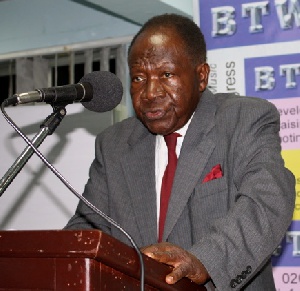This habit of sweeping unpleasantness under the carpet is often the root cause of many of the ills which plague Ghanaian society and impede social and economic progress. It must be contained at a time when values are under strain in the global village. Ghana is perhaps not more corrupt than most countries. Our main problem is that we want corruption to be chained without upsetting the offender.
Increasingly, money appears to be the God we worship in most parts of the world. Even in Britain whose standards and practices we accept as norms to follow, we observe strange happenings. For example, parliamentarians fiddle with expenses and important personalities molest young boys and girls. But over there, parliamentarians pay the price when they are caught, and the cover up of the mighty is exposed. Citizens and the media in Ghana must endeavour to expose wrongdoings when they have the opportunity.
To give a specific example, the London Independent newspaper of August 8 carried a report under the heading ‘Secret Internal Police report points to “highly corrupt” Cells in the Met.’
Some officers of the Metropolitan Police, which we regard most highly in Ghana, seized drugs from criminals and sold them. Reports of the practice were provided by the Met's own Directorate of Professional Standards 15 years ago. The newspaper report stated that the Metropolitan Police was “unable or unwilling to tackle criminality in its ranks” and the detectives concerned had never been successfully prosecuted. In fact, they have established lucrative security consultancies!
Cover-ups to retain police confidence in the “establishment” or the official system are well-known and have been practised both in the Gold Coast and in Ghana. But the time has come to let those at the top know that they are not above the law and laid-down procedures. For this to happen, we the people must act when we see wrong being done even if this will disturb the “peace” of the family or community.
We cannot resolve issues amicably or ignore and condone corruption and bad order and at the same time maintain real peace. The improvement in the economy which is vital for national stability and progress requires action which may be unpleasant to some. Corruption and inefficiency must be dealt with even if this disturbs the “peace” for many.
Recently, for example, the country was put into some financial turmoil when the value of the Cedi fell against its major trading currencies. Measures were taken by the Bank of Ghana to arrest the fall of the Cedi. Policies which have worked for many years were abandoned, and confidence in the economy was undermined. Even those who were not experts in finance were surprised at the measures which appeared to be designed to destroy confidence in the financial system.
After the horses had bolted out of the stables, the measures which caused most concern were rescinded piecemeal. This was a clear admission of serious incompetence. Those responsible must be held accountable even it disturbs the “peace” in some quarters. Incompetence which undermines the economy and, therefore, the welfare of the people cannot be allowed to continue.
We must disturb the “peace” to stem the tide of national distress. Only last week, the Royal Bank of Scotland was fined millions of pounds for inappropriate mortgage advice to customers. We should learn from such examples. The “peace” must be disturbed for a few, to maintain the freedom of the many.
Click to view details



General News of Tuesday, 2 September 2014
Source: k. b. asante

















